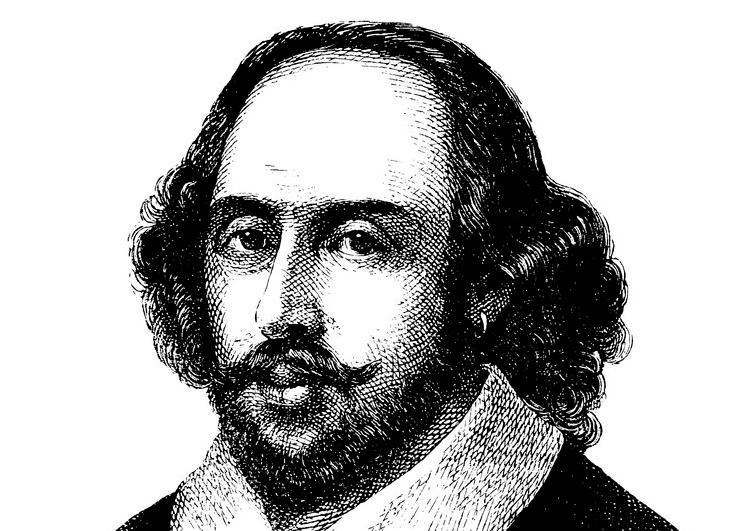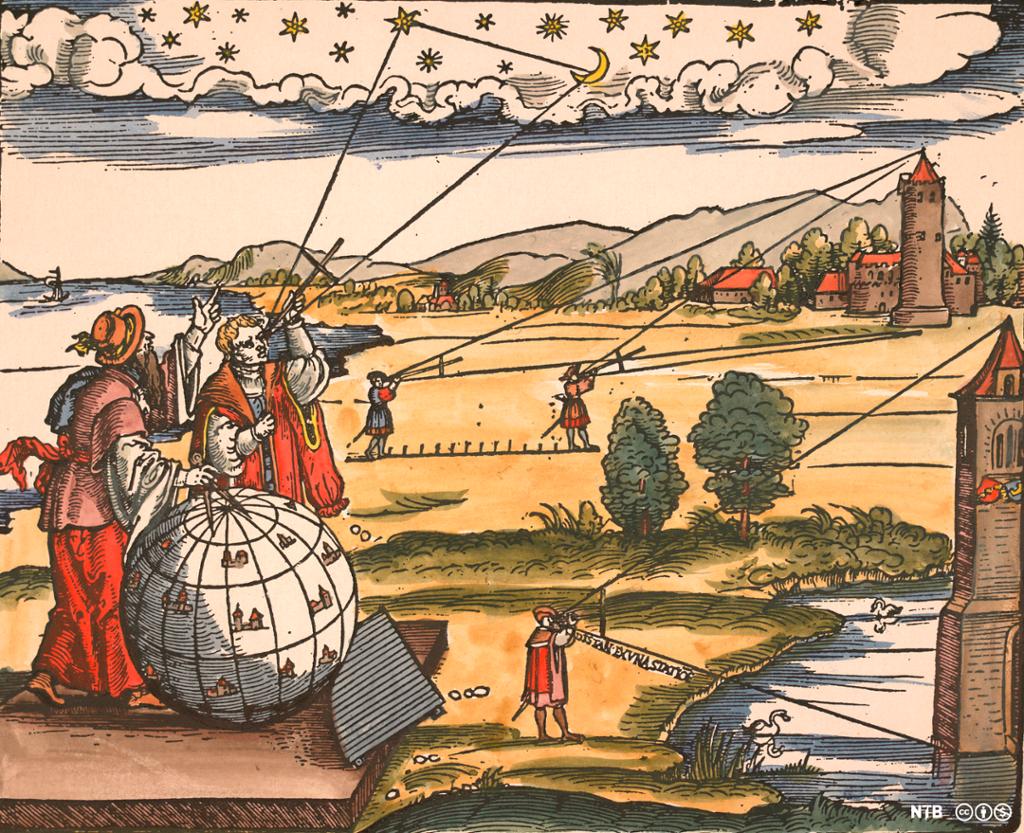Shakespeare and the Renaissance

There is a special timeless quality in Shakespeare’s work: his plays and poems are firmly anchored in his time, but they also speak to us, four hundred years after his death. Shakespeare created characters that never go out of date. They are rich in personality, and the themes of his plays – death, revenge, love, hate, power – are just as relevant today as they were 400 years ago. His good friend and fellow writer Ben Johnson (1572-1637) recognised this when he described Shakespeare's work as “not for an age, but for all time”.
Shakespeare lived during the height of the English Renaissance, and this is clearly reflected in his plays and poems. Like all writers and artists, he was influenced by what was going on around him, and he would adopt the common ways of thinking into his work. So, to fully appreciate his work, we also have to understand the world surrounding Shakespeare. What were the key values of the Renaissance society? What was important for people living during this period? And how can we see this in the work of Shakespeare?
The Renaissance can to a large extent be described as a reaction to earlier times, and as we move from the Middle Ages (about 500 – 1400 AD) to the Renaissance (about 1400-1700), we see a gradual, yet radical, shift in the religious, political, and social lives of people.
During the Middle Ages, many societies were structured as feudal systems, with the king at the top, followed by nobles, knights, and vassals. The large majority of people – craftsmen and peasants – were at the bottom of society. Moreover, the Catholic Church had a very strong grip on society. The Church insisted on its spiritual authority as the representative of God on Earth – one could only attain salvation and eternal life by following the rules of the Church. Individuals were merely servants of the king and of God, and they had little value and few rights.
As we enter the 15th century and the Renaissance, much of this gradually changed. There was a revived interest in studies that focused not on religion, but on what it means to be human. The Church remained a power in society and continued to hold a dominant position in people's everyday lives, but its position when it came to defining the truth about existence was weakened. The study of humanity became a priority. Scholars, artists, and scientists took up the challenge of understanding man’s existence and the universe, based on empirical research. This intellectual movement – humanism – emphasised man's ability to decide and think for himself, and there was a strong belief in the intellectual capacity of the human mind. It was believed that man had the ability to sort out whatever intellectual and moral obstacles came in his way.

Moreover, there was a strong focus on developing citizens who would be able to engage in the civic life of their communities. The aim was to help people realise their full potential, both for their own good and for the good of the society in which they lived. This resulted in the revival of the classical values and ideals of ancient Greece and Rome, and classical literature, art, rhetoric, and philosophy were revitalised.
The Renaissance encouraged curiosity, investigation, discovery, and modern-day knowledge, and this search for new knowledge made people question old beliefs. Scientists carried out experiments to look for answers to the great mysteries of life and of the universe, and inventions such as the telescope and the microscope facilitated these experiments. In fact, the Renaissance is perhaps the most significant period of discovery and growth of the sciences in the whole of history, and great advances were made in astronomy, chemistry, physics, maths, and anatomy. Philosophers and scientists such as Nicolaus Copernicus, Galileo Galilei, René Descartes, and Francis Bacon, are still today regarded as some of the greatest thinkers and scientists the world has ever seen. One person who truly embodied the phrase Renaissance man was the Italian artist Leonardo Da Vinci; he was a painter, sculptor, architect, inventor, military engineer, and draughtsman.
Shakespeare incorporated much of the Renaissance's new knowledge into his plays, and he often refers to new scientific discoveries of his time, especially discoveries regarding medical and astronomical science. We also find references to Britain's exploration of new worlds; especially in the play The Tempest.
However, we find the greatest evidence of his Renaissance identity in his constant investigation of the human soul. Throughout his plays, he explores the question 'What is a human being?', and he investigates this question through fully developed characters who possess knowledge and wit, doubt and fear, and who are capable of self-expression and the practice of individual freedom. Watching his plays, we can easily relate to Ophelia’s distress, Hamlet’s anguish, and the ever-lasting love between Romeo and Juliet. We see their short-comings and their strengths, we follow them in their struggles against the world and the universe, and we feel for them in their tragic deaths.
In Hamlet, Shakespeare articulates the humanist worldview in a nutshell. In a conversation with his two friends Rosencrantz and Guildenstern, Hamlet goes to the heart of the question of what a human being is:
What a piece of work is a man, how noble in reason, how infinite in faculty, in form and moving how express and admirable, in action how like an angel, in apprehension how like a god, the beauty of the world, the paragon of animals! And yet to me, what is this quintessence of dust?
Hamlet, Act 2, Scene 2.
In this quote, Hamlet praises the wonderful qualities of human beings, but he also points out how insignificant we are in the big picture – we are merely dust.
In every play, Shakespeare introduces new themes, but they are all related to the question of what it means to be a human. They all raise profound questions about human existence, and they examine the human dignity and feelings of the characters. This is probably the most important reason why Shakespeare’s plays are so universal and have remained popular for so long.
Related content
Find out more about William Shakespeare and the Renaissance period.
In this podcast, you will learn more about the life and work of William Shakespeare.